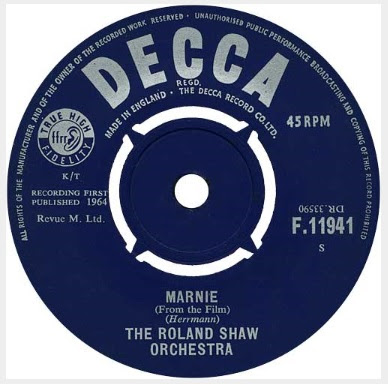Jack Smith (31 May 1898, The Bronx, New York City – 13
May 1950, New York City) was known as "Whispering" Jack Smith and was
a popular baritone singer in the 1920s and 1930s who made a brief come-back in
the late 1940s. He was a popular radio and recording artist who occasionally
appeared in films.
 Smith was born John Schmidt and began his professional
career in 1915, when he sang with a quartet at a theatre in the Bronx. After
service in World War I, he got a job in 1918 as a "song plugger" for
the Irving Berlin Music Publishing Company. He was a pianist at a radio station
when he got his singing break substituting for a singer who failed to show up.
Smith was born John Schmidt and began his professional
career in 1915, when he sang with a quartet at a theatre in the Bronx. After
service in World War I, he got a job in 1918 as a "song plugger" for
the Irving Berlin Music Publishing Company. He was a pianist at a radio station
when he got his singing break substituting for a singer who failed to show up.
Beginning in 1925, Smith generated a steady stream of
Victor and HMV recordings in the U.S. and in London, where he performed
periodically in stage revues. When he wasn't accompanying himself at the piano,
Smith relied upon someone else to tickle the keys or strum a guitar. His 1926
recording of "When the Red, Red Robin Comes Bob, Bob, Bobbin' Along"
featured special guest whistler Carson Robison.
Smith also sang with various society dance orchestras. Smith's biggest hits were "Gimme a Little Kiss, Will Ya, Huh?" and "Me
 and My Shadow." He made his London debut in the Midnight Follies
at the Hotel Metropole in 1926 singing tunes such as "Manhattan" by
Rogers and Hart and songs by Gershwin, when he was suddenly replaced by a new
all-girl singing trio, the Hamilton Sisters & Fordyce. Smith returned to
New York and eventually went to work for NBC Radio.
and My Shadow." He made his London debut in the Midnight Follies
at the Hotel Metropole in 1926 singing tunes such as "Manhattan" by
Rogers and Hart and songs by Gershwin, when he was suddenly replaced by a new
all-girl singing trio, the Hamilton Sisters & Fordyce. Smith returned to
New York and eventually went to work for NBC Radio.
Smith was back in
England for the opening of Will-o'-the-Whispers at the Shaftesbury Theatre on
April 4, 1928, and performed in front of enthusiastically receptive audiences
in Berlin during August of that year.
 He had a very distinctive style which was a combination
of singing and talking in a very "intimate" way using the microphone
very effectively as opposed to "belting" the song out. His
"whispering" style of singing was a result of a World War I injury
from poison gas that kept him from singing at full volume. He made the "whispering"
style popular, and there were a number of imitators. Smith took to the
relatively newly invented microphone, and it was singers like
"Whispering" Jack Smith and the early "crooners" who
developed the use of this "modern" technology.
He had a very distinctive style which was a combination
of singing and talking in a very "intimate" way using the microphone
very effectively as opposed to "belting" the song out. His
"whispering" style of singing was a result of a World War I injury
from poison gas that kept him from singing at full volume. He made the "whispering"
style popular, and there were a number of imitators. Smith took to the
relatively newly invented microphone, and it was singers like
"Whispering" Jack Smith and the early "crooners" who
developed the use of this "modern" technology.
Smith’s "disarmingly intimate, polite, and velvety
smooth delivery … distinguished him from everyone else." One reviewer in
 describing his "whispering" style said that "His art was the
epitome of understatement." Another indicated, "With a pleasing stage
presence, and a genial manner, Whispering Jack Smith establishes contact with
his audience just as soon as he sits at his grand piano, and he wins more
applause with every song."
describing his "whispering" style said that "His art was the
epitome of understatement." Another indicated, "With a pleasing stage
presence, and a genial manner, Whispering Jack Smith establishes contact with
his audience just as soon as he sits at his grand piano, and he wins more
applause with every song."
 describing his "whispering" style said that "His art was the
epitome of understatement." Another indicated, "With a pleasing stage
presence, and a genial manner, Whispering Jack Smith establishes contact with
his audience just as soon as he sits at his grand piano, and he wins more
applause with every song."
describing his "whispering" style said that "His art was the
epitome of understatement." Another indicated, "With a pleasing stage
presence, and a genial manner, Whispering Jack Smith establishes contact with
his audience just as soon as he sits at his grand piano, and he wins more
applause with every song."
In 1930 Smith went to Hollywood, where he appeared in one
of the first talking motion pictures, Cheer Up and Smile, during which he sang
"You May Not Like It -- But It's a Great Idea." Whispering Jack Smith
continued to perform throughout the 1930s, although his popularity gradually
waned as styles changed. He staged a modest comeback in 1940 and made a handful
of sentimental recordings, but quickly lapsed back into a rather early
retirement.
Out of place in an increasingly rude and clamorous world, he died of a heart attack at the age of 51 in New York, 13 May 1951. He is buried next to his mother Anna Schmidt at St. Raymond's Cemetery in the Bronx, New York City. His grave is unmarked. He was survived by his wife, Marie. (info edited from Wikipedia & AllMusic)

















































